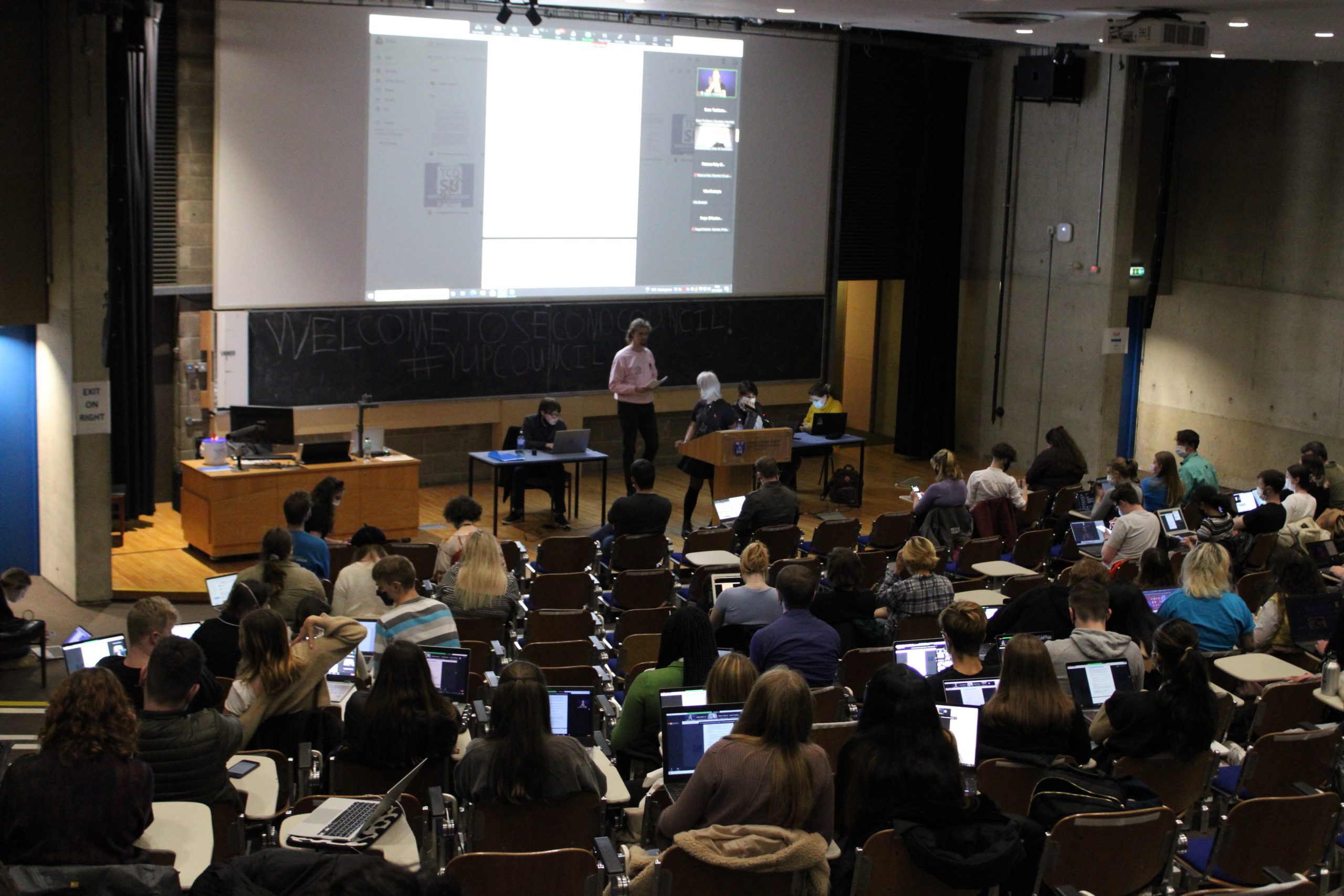Trinity College Dublin Students’ Union (TCDSU) Council has passed a motion which mandates the union to lobby the Union of Students in Ireland (USI) to change to a system in which USI sabbatical members are directly elected.
TCDSU is now mandated to lobby for all USI sabbatical members to be voted on by the student body in all affiliated member organisations of the USI, which includes most student unions.
The motion was proposed by Social Sciences and Philosophy (SSP) School Convenor László Molnárfi and seconded by TCDSU President Gabi Fullam.
As an affiliated member of the USI, TCDSU delegates vote for the USI executive team at the national congress each year. All students in Trinity are members of both TCDSU and the USI.
TCDSU delegates at the national congress are obliged to vote in line with the majority preference from a referendum to the student body in an electoral college system, though this system is not uniformly practised in all student unions.
While some local students’ unions vote as per the preference of their respective students’ union council, others allow their delegates to vote freely, without regard to the preference of the student bodies they represent.
Speaking at Council, Mólnárfi said: “We have seen how good it is when the USI takes action.” He said that USI “must change structurally”.
“We need to make sure that the USI operates under a one-member-one-vote system.”
He continued to say there is “strength in the collective” but is campaigning for more direct student representation, “all of us, not just sabbatical officers’ ‘. To send the message that “all of us can actually engage with the USI”.
USI Vice President for the Dublin Region and former TCDSU Welfare & Equality Officer Sierra Müller-Owens agreed that reform is needed but campaigned for it to be brought to the focus groups. She advocated for a “more reasonable and workable solution.”
Molnárfi responded saying the motion “doesn’t prescribe a system” and it’s “opening the doors not actually going through the doors”.
Müller-Owens responded by saying that this kind of campaign “would mean that only presidents of member organisations would have voting rights” as “the union is the member it’s not individual students who are members of USI”.
Molnárfi responded that this rule is “a technicality”, but agreed to amend the motion from “one-member-one-vote” to “universal suffrage” to avoid ambiguity.
Speaking to Trinity News before Council, Mólnárfi, who is also a member of the USI campaign strategy team, emphasised the importance of student engagement in the USI, stating that “if the USI wants to sustain the engagement it got at the student walkout, it has to change structurally”.
“Our national union is too officer-driven rather than student-driven. Therefore, if we want to ensure that in the future, radical action happens, the USI’s voting system should switch to allow universal suffrage.”
“The power to mobilize comes from sustained engagement of students with the union which will happen if USI sabbatical candidates have to campaign amongst the student body rather than just campaign student union sabbatical officers,” Molnárfi added.
Highlighting the case of University College Dublin Students’ Union (UCDSU), he stated that: “This is called ‘one member one vote’ and it was actually one of UCDSU’s original demands in 2013 before leaving.”
Article was updated on 2 November 2022 at 14:23 to correct the wording of the motion, and to correct a spelling error in the name of Sierra Müller-Owens, and on 6 November at 16:58 to correct who seconded the motion, and to clarify amendments made to the motion.






